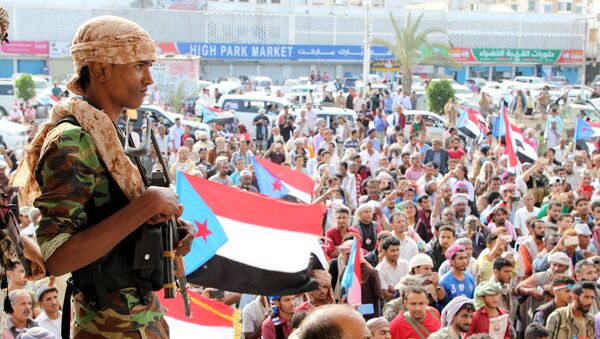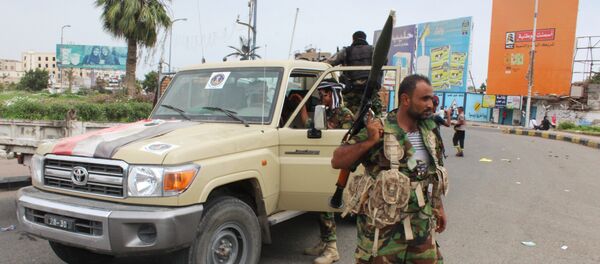Forces loyal to Yemeni President Abdu Rabbu Mansour Hadi, backed by Saudi Arabia, exchanged fire with an armed group linked to the Southern Transitional Council, a movement supported by the United Arab Emirates that is demanding secession for southern Yemen, in the city of Aden on Sunday. According to reports, at least 10 people were killed and 30 others were wounded in the clashes.
Following the battle, officials in Yemen accused the southern separatist forces of trying to stage a coup after they took hold of government offices.
Speaking with Sputnik Radio's Loud & Clear, Mustafa Akhwand, executive director of Shia Rights Watch, offered insight into the ongoing issues in Yemen and his take on what needs to happen to ease the suffering of the Yemeni people.
"Right now, the situation is between Saudi Arabia and UAE," Akhwand said. "There is a lot of news and documentation that there is a natural resource in Yemen and that each of those countries want to have a stake [in it]."
"Thats a big issue right now," Akhwand added, referring to the newfound resources of oil, silver and gold along Yemen's border with Oman. "If Saudi Arabia controls that, they're going to control more natural resources in the region and the UAE, at the same time, because they have a small country, they're trying to get [control of the natural resources in order to get] more power in the region as well."
Akhwand described the ongoing situation to show hosts Brian Becker and John Kiriakou as "the poorest country fighting the richest country in the region."
And yet, the situation is only going to get worse, the activist said.
"We have 10,000 people killed, almost 19 million out of water, gas, any natural resources and more than 2 million children without education, which will create a third party conflict of observers who will be in the region and not have enough education to survive," he told Kiriakou.
For Akhwand, the only way for the situation to settle and see a positive change is simply for the violence to stop and to get Yemenis in the northern and southern region to find a balance in order to get along.
"That's the one thing we have to do, to get the north and south to work together," he told Becker. "Hadi has to go and someone moderate has to come who will work with the Houthis and others to build the country again."
"With this new natural resources that is coming a lot of economy growth can come, a lot of medical resources can be built, a lot of education can be given… that's what we need to bring to the country to be able to work with," he added.


